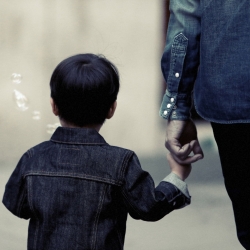To provide the best experiences, we use technologies like cookies to store and/or access device information. Consenting to these technologies will allow us to process data such as browsing behaviour or unique IDs on this site. Not consenting or withdrawing consent, may adversely affect certain features and functions.
The technical storage or access is strictly necessary for the legitimate purpose of enabling the use of a specific service explicitly requested by the subscriber or user, or for the sole purpose of carrying out the transmission of a communication over an electronic communications network.
The technical storage or access is necessary for the legitimate purpose of storing preferences that are not requested by the subscriber or user.
The technical storage or access that is used exclusively for statistical purposes.
The technical storage or access that is used exclusively for anonymous statistical purposes. Without a subpoena, voluntary compliance on the part of your Internet Service Provider, or additional records from a third party, information stored or retrieved for this purpose alone cannot usually be used to identify you.
The technical storage or access is required to create user profiles to send advertising, or to track the user on a website or across several websites for similar marketing purposes.
 ‘Stress by Sector’ data released by e-days claims concerning statistics that stress-related appointments are up generally in business by 64 percent over 2019. The data claims that the sectors struggling most with stress-related sickness are unsurprisingly healthcare (0.64 days of stress related absence on average per employee), followed by Government and International Affairs (0.57 days on average per employee) and Human Resources and staffing (0.39 days on average per employee). More →
‘Stress by Sector’ data released by e-days claims concerning statistics that stress-related appointments are up generally in business by 64 percent over 2019. The data claims that the sectors struggling most with stress-related sickness are unsurprisingly healthcare (0.64 days of stress related absence on average per employee), followed by Government and International Affairs (0.57 days on average per employee) and Human Resources and staffing (0.39 days on average per employee). More →






 No-one could have predicted what 2020 would deliver. A pandemic, lockdown, moving the workplace into the home. We are in uncharted waters. The Oxford English Dictionary defines resilience as being able to withstand or recover quickly from difficult conditions. Resilience is an almost stoic quality, and a pandemic a time of crisis. It almost feels like they are a match made in heaven. But how does this affect organisations? What can be done? Is it really that important to build employees’ resilience?
No-one could have predicted what 2020 would deliver. A pandemic, lockdown, moving the workplace into the home. We are in uncharted waters. The Oxford English Dictionary defines resilience as being able to withstand or recover quickly from difficult conditions. Resilience is an almost stoic quality, and a pandemic a time of crisis. It almost feels like they are a match made in heaven. But how does this affect organisations? What can be done? Is it really that important to build employees’ resilience? 
 A December 2020 online study of 1,136 employed U.S. adults carried out by wellbeing provider
A December 2020 online study of 1,136 employed U.S. adults carried out by wellbeing provider 
 Earlier this month, in a sudden and unexpected turn of events, the prime minister’s chief adviser, Dominic Cummings, walked out of 10 Downing Street for the last time, having resigned/been asked to leave, depending on whose account of the episode you believe. However, the affair unfolded in reality, it seems clear that the departure of Cummings and Director of Communications, Lee Cain, was precipitated by workplace conflict and a series of internal disagreements, which had pushed their relationships with certain colleagues to breaking point.
Earlier this month, in a sudden and unexpected turn of events, the prime minister’s chief adviser, Dominic Cummings, walked out of 10 Downing Street for the last time, having resigned/been asked to leave, depending on whose account of the episode you believe. However, the affair unfolded in reality, it seems clear that the departure of Cummings and Director of Communications, Lee Cain, was precipitated by workplace conflict and a series of internal disagreements, which had pushed their relationships with certain colleagues to breaking point. 
 In a recent
In a recent 


 New research published by
New research published by 
 Workers have become less open about their mental health struggles since the coronavirus outbreak because of fears they could lose their jobs if they speak up, claims new research from the
Workers have become less open about their mental health struggles since the coronavirus outbreak because of fears they could lose their jobs if they speak up, claims new research from the 


 2020 has been the most stressful year in history for the global workforce and people want robots to help, according to a new study by
2020 has been the most stressful year in history for the global workforce and people want robots to help, according to a new study by 








January 28, 2021
Philanthrocapitalism: a century-old concept for the modern age
by Richard Glynn • Comment, Wellbeing